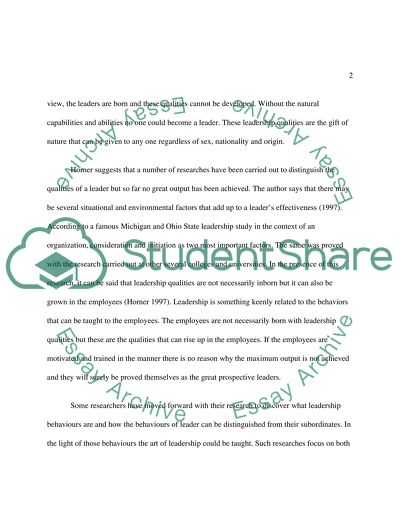Cite this document
(“Leaders are born and not made critically discuss Essay”, n.d.)
Retrieved from https://studentshare.org/miscellaneous/1520571-leaders-are-born-and-not-made-critically-discuss
Retrieved from https://studentshare.org/miscellaneous/1520571-leaders-are-born-and-not-made-critically-discuss
(Leaders Are Born and Not Made Critically Discuss Essay)
https://studentshare.org/miscellaneous/1520571-leaders-are-born-and-not-made-critically-discuss.
https://studentshare.org/miscellaneous/1520571-leaders-are-born-and-not-made-critically-discuss.
“Leaders Are Born and Not Made Critically Discuss Essay”, n.d. https://studentshare.org/miscellaneous/1520571-leaders-are-born-and-not-made-critically-discuss.


